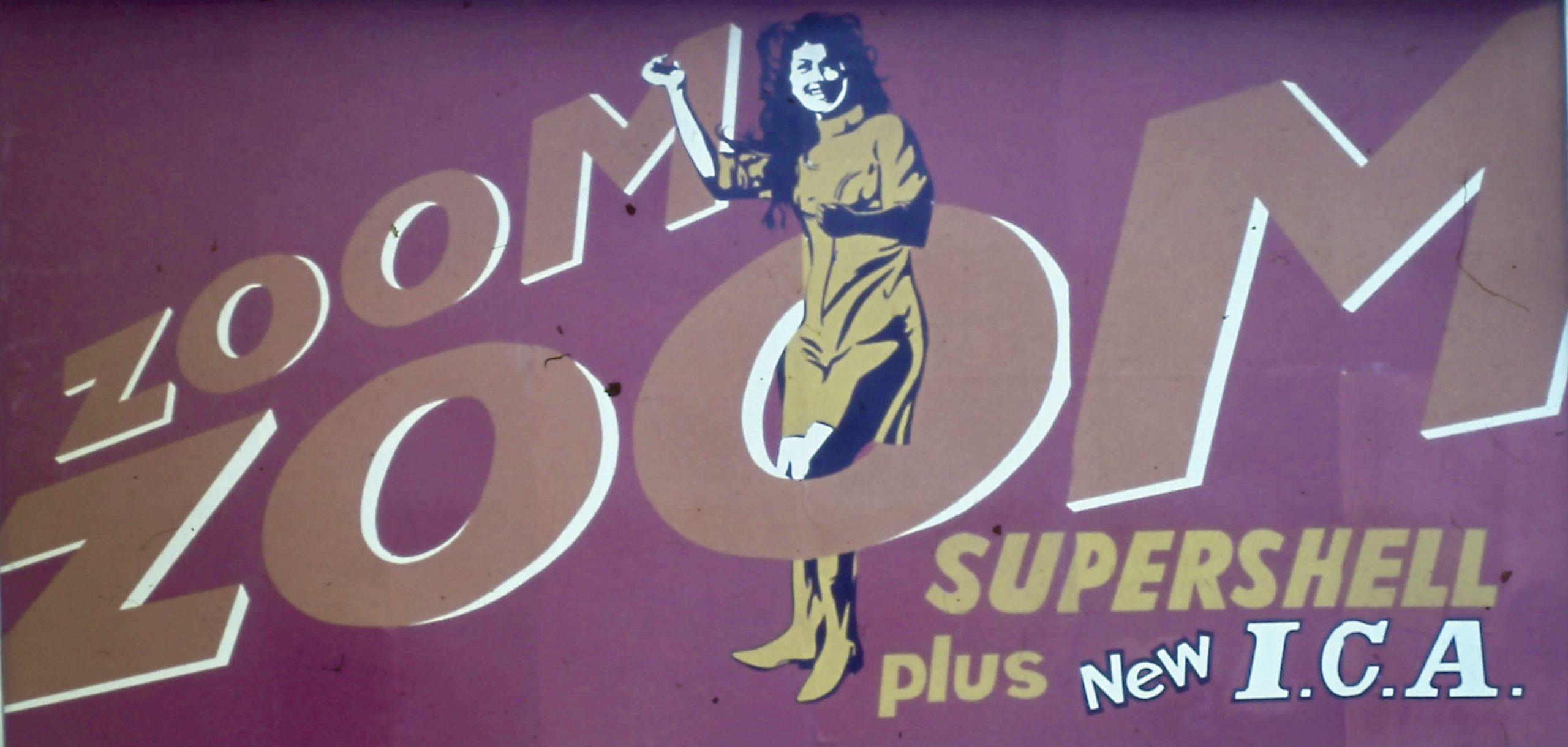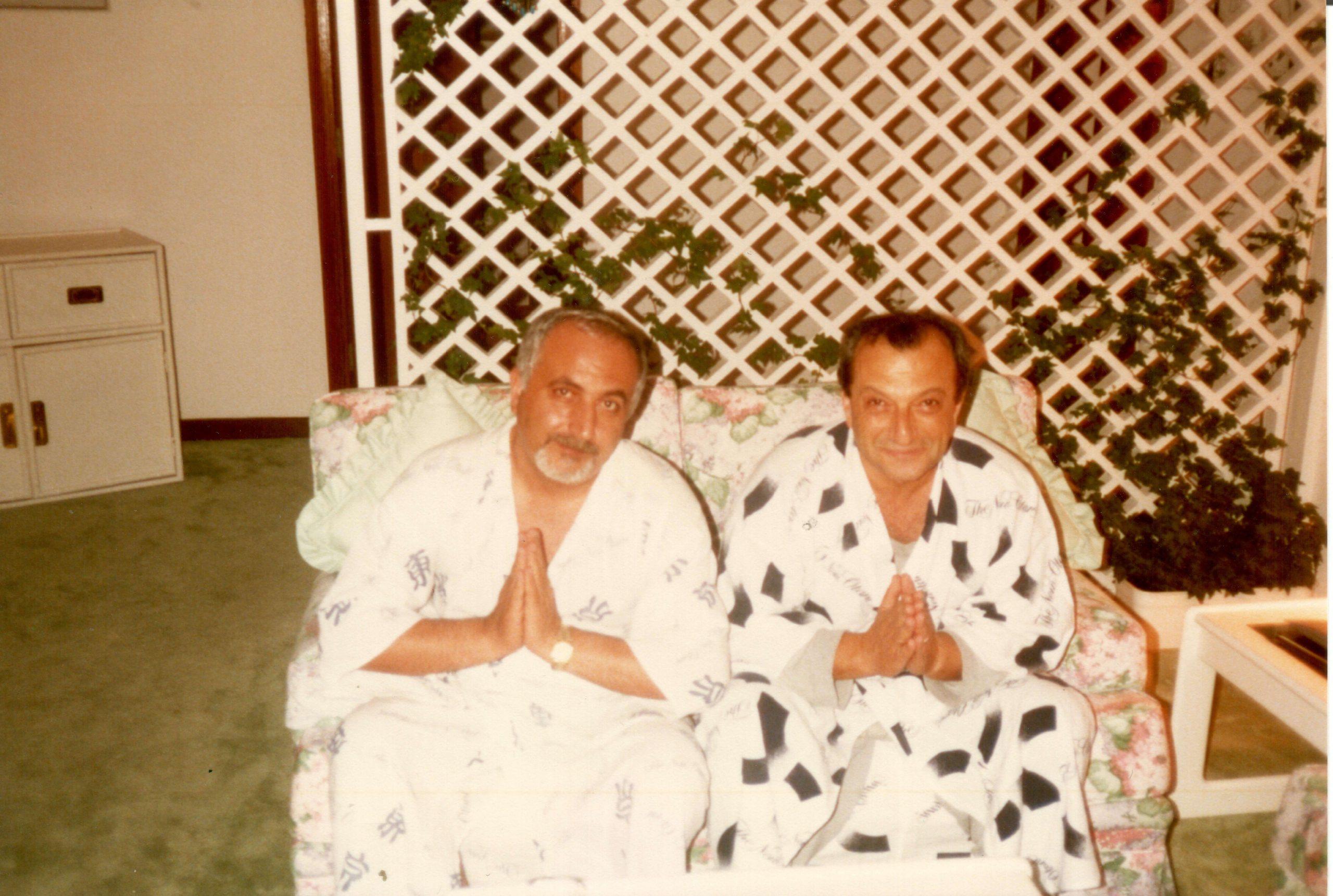Ferdinand Farwaji saw that his ultimatum to Shell’s advertising agency has quickly delivered. He informed Raymond Hanna and Nahi Ghorayeb that he would instantly lift the notice he had placed on HIMA the moment the candidate they had arranged for him to interview came onboard and took full responsibility of the Shell account. So, I was called again for a meeting at HIMA, where I was presented with my appointment letter.
I went back to Philippe Hitti to break the news and he reacted like one of Lebanon’s severest storms. First a bolt of lightning struck his office, followed by a very loud burst of thunder. Then the storm suddenly calmed, and the promise of a missed partnership was waived. But when I responded, explaining that I was after the experience and the prospect of a different type of learning, he called on my uncle, complaining in a tone that he had never used with one of his major clients. By the end of it, I moved out, in pursuit of a genuine international experience.
Ferdie Farwaji – as people called him – was a fascinating character. He knew all the Shell people around the region, and he singlehandedly controlled their activities from his office overlooking Pigeon Rocks in Raouché. On my first day as Shell’s regional account director, he wanted me to attend a familiarity course planned for the company’s senior employees. This was being conducted by the company trainer, Youssef Abou Ezzedine, at the Shell Training Centre in what was known as the Kazkhana on Dora’s waterfront. There, I became acquainted with newcomers to the company, like Sami Abdel Massih and Johnny Theodory, who became lifelong family friends. The training was a quick induction into Shell Oil Company history and the product range (mainly automotive lubricants) it offered through its retail network in the Middle East, the Arabian Gulf and Africa. We soon graduated and quickly moved to our designated postings.
In Lebanon, the company operated two competing retail networks: Shell and BP. My direct client was the soft-spoken Eugene Barakat, the advertising manager for both companies. However, in my day-to-today dealings I had a lot of interaction with the merchandising manager, Albert Mamo, who was a leading basketball player at one of the major league clubs in the Lebanese capital. The director of sales at Shell Lebanon and BP Lebanon Ltd was Sami Kurban, who I later discovered to be a family friend. Obviously, Ferdie Farwaji oversaw everything that had to do with advertising, but even though he was spending most of his time in Beirut, he seemed to be more involved in distant operations than in home turf.
At that time, Lebanon had five competing gasoline networks, namely Shell, BP, Mobil, Esso, Total and Caltex, which were toughly engaged in what was known as the gasoline additives war. Shell had planned to blend its gasoline additive carrying the code name ICA (Ignition Control Additive) and launch an integrated campaign to announce this. Ferdie Farwaji’s global contacts proved handy when he suggested TV advertising to give an edge to ICA when all other oil companies were using only print and outdoor to introduce their own additives. Obviously, none of the competitors felt it business-viable to produce TV commercials for such a short-lived marketing stunt, but Shell’s regional advertising coordinator knew that in the Philippines Shell had produced a magnificent TVC for a similar launch and this was how we imported the “Zoom, Zoom Super Shell” film, which he briefed us to adapt for the local launch. Soon, the two TV stations in Lebanon were echoing the jingle “Zoom, Zoom Super Shell”, while billboards and pump crowns carried the campaign slogan and the picture of the two dancers.
Classical marketers’ concern over launching such a technical motoring innovation on TV – featuring two girls dancing to the tune of a meaningless jingle – instead of lines and lines of technical explanation soon fizzled away. The tills of the cash registers at Shell stations all over Lebanon proved that Ferdie Farwaji was an ad man who was ahead of his time and one that I needed to learn more from.
My chance to prove what a good student I was came very soon after this Shell advertising success story. This happened when BP realized that it could not continue selling pure gasoline when all the other brands were offering additives with theirs. BP did not have a name for its additive, so it asked the agency to create one. At HIMA there were many creative thinkers, so we all got together in a succession of brainstorming sessions, while I had reached an advanced stage of deploying the creative genie in me to develop the launch campaign ahead of the creative team. My inspiration came from the Shell “Zoom, Zoom” experience, which showed that motorists enjoyed the entertainment route more than boring technical speeches.
I went back to our family garden in Aley to look for the turtle that my mother had named Khairieh (the donor of goodness) because she associated her arrival in the garden with the recovery of my youngest brother from arthritis. Luckily the turtle was still there, so I carried it to my balcony studio where I had built a cardboard rocket, which I mounted on Khairieh’s outer shell and took many shots, which the designers were great at manipulating, adding a pair of skateboard wheels and speed motion touches. This proved to be the catalyst for us calling the BP additive “Gamma 4”, and we launched our rocket-propelled turtle across the daily press and all forecourt opportunities. The launch of BP’s Gamma 4 was the second success story for the new account team at HIMA in a short period of time.
The Shell account team was built of two leaders. Raymond Hanna’s name was featured at the entrance of the agency since he was its founder. He had originally launched the agency at Halim Hanna & Company, his father’s office at Souk El Joukh, after graduating from the US. HIMA was a heavy advertiser with Télé-Orient, where Nahi Ghorayeb, the Sorbonne graduate, and Dr Lucien Dahdah’s preferred advertising sales executive, had HIMA in his portfolio. Nahi became a very close friend of Raymond and soon he was brought onboard as a partner and the agency moved to its independent premises at Abdel Aziz Street in Hamra.
This became my new office, and I developed a very close friendship with Melhem Moussallem, the brother-in-law of Raymond and the executive who was handling the Shell account before I joined. Melhem’s new role was to assist me, and we managed to work in great harmony. Together, we embarked on many young men’s adventures, but the memory that stayed with me the longest was Melhem’s wedding at an old farm church in the middle of the Beqaa Valley.
The media planning and buying responsibility within the account team was in the hands of Kamal Darouny, who was assisted by Melhem’s youngest brother, who also was called Kamal. He, too, was in love with his hometown, Zahlé, and this meant he arrived at the agency after lunch every Monday. The charming and sole female face amongst the entire team was Hilda Jabbour, Raymond’s personal assistant, who became a friend and an assistant to all of us.
Nahi Ghorayeb spent his summers at Al Bahhar Hotel in Aley. This summer resort hangout was better known as a lokanda rather than a hotel. It was very popular amongst those Lebanese families who did not own summer houses in Aley or in Bhamdoun. Nahi used to drive an olive-green convertible MG and he would pick me up every morning while en route to the agency. This was my perfect opportunity to bond with my boss.
As the war of the gasoline additives came to an end, the war of the sales promotion was declared, and this provided me with a wealth of opportunity to learn. Total, the French oil company, was the first to start offering gifts at its forecourts and this swayed motorists in its direction. Shell wanted to retaliate so we all agreed on a “scratch and win” promotion. As we dashed to find a printer who could supply scratch and win cards in big quantities – and quickly and securely – Ferdie Farwaji intervened, insisting that this should be only printed according to Shell international standards.
Farwaji put us in contact with a UK security printer called Glendinings. So, at the agency we designed the cards according to its specs, which required multiple attempts to fit within the perforated area. We also printed the winning statements in Arabic, French, English and Armenian to allow winners to come and claim their prizes.
When the printing was done, Glendinings insisted that someone should fly to England to take delivery of the winning cards, sign for them, and ensure that they were inserted randomly in Lebanon amongst the bulk quantities that had been airfreighted. I was asked to get ready to travel, which caused a great deal of excitement at HIMA and amongst my family. But Glendinings wired back, insisting they would only deliver the winning tickets to a senior Shell executive. Sami Kurban flew to London and brought the winning cards back and locked them up in his office safe. He was the only person who knew in which batches these were inserted.
Then, one day, Ferdie Farwaji called on me to say that I had passed all the professional tests in Lebanon and was fit to embark on my regional role. He asked me to get ready to spend a couple of weeks in Dubai, the Northern Emirates and Abu Dhabi.
Related Chapters…
-
Chapter 22\ Driving with Shell
Ferdinand Farwaji saw that his ultimatum to Shell’s advertising agency has quickly delivered. He informed Raymond Hanna…
-
Chapter 23\ My punishment for not holding a driver’s license
I flew to Dubai, where Johnny Theodory, who I had met on the training course, picked me…
-
Chapter 25\ Flying in the plane’s toilet
Ferdie Farwagi was awaiting my return from the first visit to Shell Markets in the UAE. As…
-
Chapter 29\ Helping Sudan to drive on the right
One of the surprises of my first visit to Sudan was finding out that they drove on…




